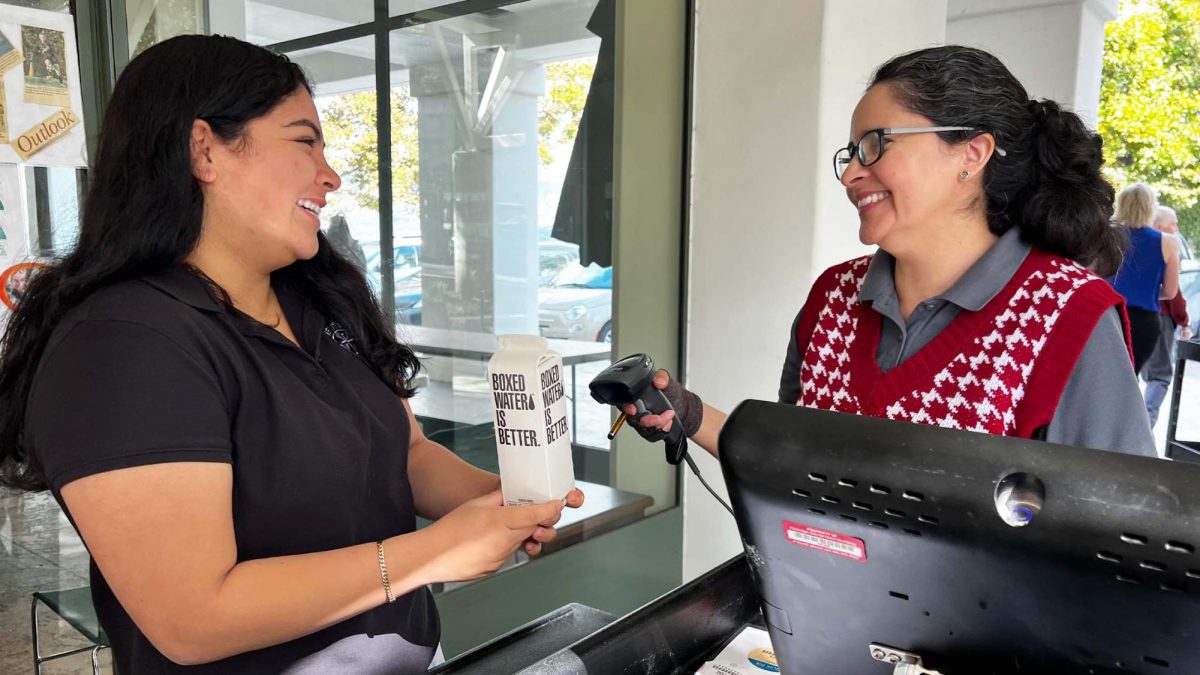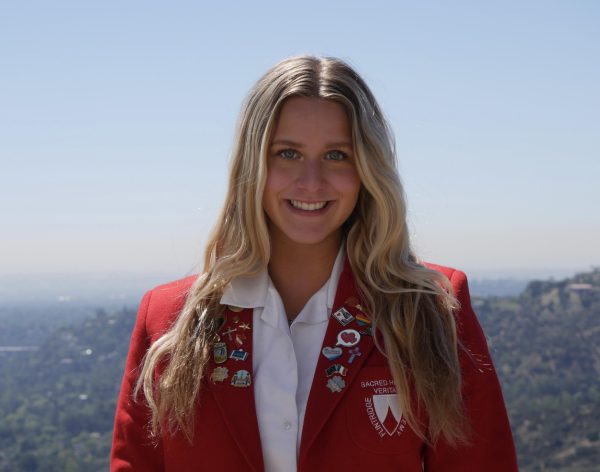Thanks to AP Environmental Science students on the Hill, the Tolog Cafe has experienced real change in sustainable packaging and limited plastic use.
After finishing their AP exam last May, AP Environmental Science students had the opportunity to pursue a service project of their choice. One block hosted a clothing swap where Tologs received a clothing item for every piece they donated. The other block sold bamboo cutlery at the Tolog Cafe to help reduce the use of single-use plastic utensils on the Hill.
“The one thing that was really cool was when the staff and faculty were excited to purchase that [bamboo cutlery] and have it for themselves, their children and their families. They were really supportive of that idea,” AP Environmental Science teacher Ms. Leslie Miller said.
After their week-long sale, students were inspired to take their sustainable initiative a step further. They scheduled a meeting with Flintridge Sacred Heart’s financial office and Mr. Omar Rivera, the Food Service Director, to brainstorm ways to make the cafe even more sustainable.
“They managed to have a meeting with Ms. Mauer and bring some of these points to her because she very much understood the issues,” Ms. Miller said. “In fact, she brings her own cutlery and bento boxes [to school] every day, so she was very married to trying to reduce waste on campus.”
The students’ meeting with the business office and Mr. Rivera was a success. The result: the cafe no longer sells plastic water bottles and has pivoted to boxed water. Mr. Omar Rivera, the director of the Tolog Cafe, agrees that these changes to the cafe are beneficial and have even changed his perspective in the kitchen.
“We put a water station out there [alongside the SAC] with paper cups and people seem to like it. We’ve also gotten rid of all our plastic on the hot line,” Mr. Rivera said. “We are using more paper products, are going to start phasing out the dispensers and I’ve already looked into getting more plant-based stuff.”
Using sustainable and biodegradable utensils is one of the many ways that Tologs can reduce waste on campus.
“They also looked at the plastics that are being used for all the salad items, the watermelon, the fruit, …trying to find some different options. The salad containers are now considered biodegradable and recyclable. And so they’re going to continue to push for that because they can see why that would be a great thing,” Ms. Miller said.
Many APES students appreciated the chance to do their own service project after the AP exam, which allowed them to create advocacy and activism in the FSH community. Through this process, the students experienced putting their learning into action and can now see the positive impacts ricochet through campus.
“I think what was exciting for the students was going through the process of something we care about with something we learned about. There’s so much plastic waste. What can we do? How can we reduce our footprint here in terms of usage and to be able to put together facts?” Ms. Miller said. “[Students] compared a dollar value or how much things would cost. They worked up a presentation to present to the finance department and it was very convincing. I think learning all those skills in addition to putting into play what they had learned was really powerful. They were really pleased to see some of those changes came in place during the summer when they got back.”
With new measures of environmentalism, the future is greener than ever on the Hill. In fact, FSHA has even started a new co-curricular called “sustainable initiatives,” which will continue to support environmentalism on campus.


